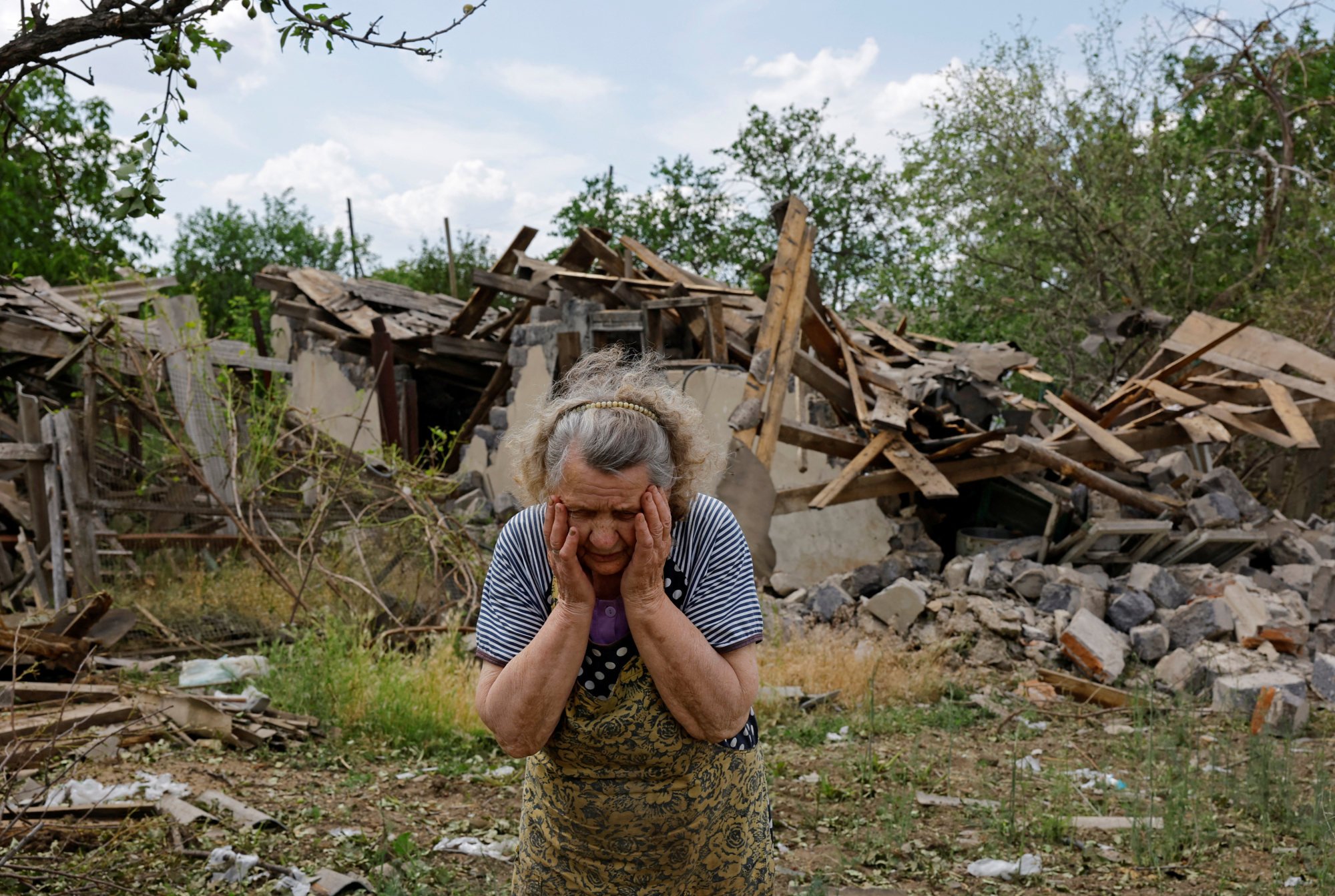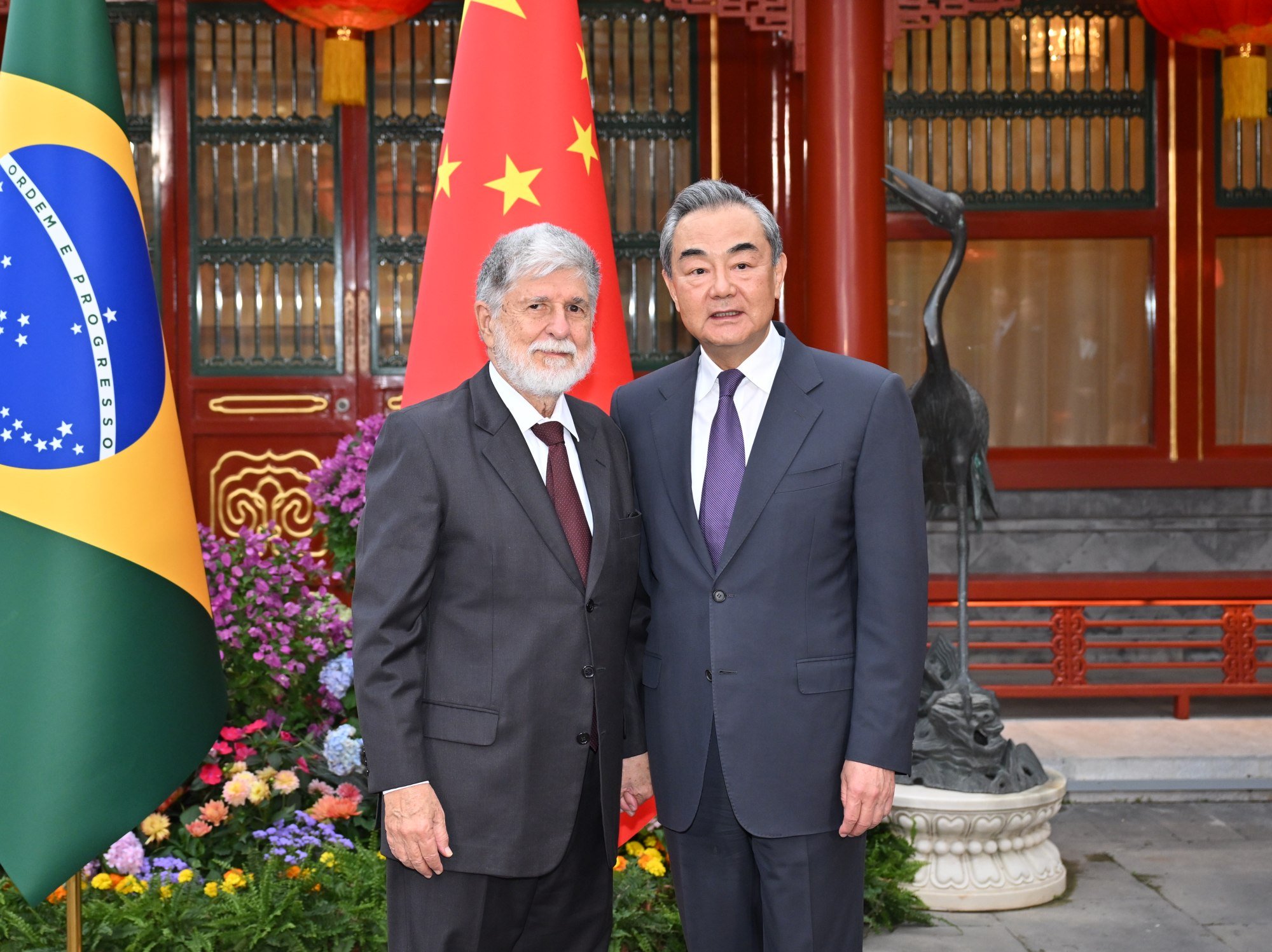“What we’ve seen from China to Russia is not a one-off or a couple of rogue firms involved in supporting Russia,” Campbell said.
“This is a sustained, comprehensive effort that is backed up by the leadership in China that is designed to give Russia every support behind the scenes.”
Beijing’s actions had created capacities for Moscow not only on the battlefield but also to be “able to pose a strategic challenge to others in Europe”, the American envoy said.
“Now the gloves are off,” they said.
At the end of May, the top Asia officials from a group of EU members met in Stockholm to discuss China. The consensus was that Europe must “impose more cost on China for its support of Russia”, according to a figure familiar with the discussion.
Campbell and Zelensky’s subsequent remarks have helped solidify what has been described as a “more assertive trajectory” on China among significant EU members.
The diplomatic one-two came at a crunch moment for EU-China relations.
Many believe this could kick off a tit-for-tat trade war, with Beijing threatening consistently to retaliate.
“Instead of postponing the decision, the EU commission should stop the probe ASAP. China stands ready to safeguard businesses’ lawful rights and interests.”
Europe heads to the polls on Thursday for its twice-a-decade European Parliament elections, which will help determine the course of the bloc’s ties with Beijing until 2029.
The European People’s Party to which European Commission President Ursula von der Leyen belongs is expected to emerge again as the top grouping, with the German likely to be nominated for a second stint as head of the EU’s civil service.
This is likely to mean a continuation of de-risking its trade with China and of its all-in support for Ukraine.
“EU countries are worried to go head to head with China, but they know they have to in the next political cycle with lawmakers pushing for protecting European jobs and industries, there’s no way around it,” said a senior EU diplomat.
They will be “happy” to use Zelensky’s remarks as an “additional excuse [to be tough on Beijing], saying China is also helping Russia against Ukraine”, the diplomat added.
While Beijing claims to be neutral in the war, it is broadly seen in Europe as having sided with Russia, widely regarded as the conflict’s aggressor.
At a press conference in Beijing on Monday, foreign ministry spokeswoman Mao Ning flatly denied that China had tried to stop other countries from attending a Swiss-led Ukraine peace summit this month, describing its position as “fair and impartial”.
On Friday, she confirmed China would not send a delegation to the Swiss talks.
“China has always insisted that an international peace conference should be endorsed by both Russia and Ukraine, with the equal participation of all parties, and that all peace proposals should be discussed in a fair and equal manner.
“Otherwise it will be difficult for it to play a substantive role in restoring peace,” Mao said.

But Western governments have accused China of intensifying the sale of goods with military and civilian uses to the Russian military in recent months.
On Monday, the EU’s top official on export controls, Stéphane Chardon, shared on X a Financial Times story reporting that a Chinese state-backed trade group tried to buy drone-jamming equipment for Russian buyers last month.
“That is worrying,” Chardon wrote.
Analysts said Zelensky’s Shangri-La activity showed that Ukraine’s top brass had had enough.
“Until now, Kyiv has always been very careful not to alienate China. Ukraine wanted China present at the peace conference. Aggressively alienating China would also have hurt its image in the Global South,” said Sense Hofstede of the Clingendael Institute, a Dutch think tank.
“However, Zelensky now seems to be losing some patience.”
Yurii Poita, head of the Asia-Pacific section at the Centre for Army, Conversion and Disarmament Studies in Ukraine, said Zelensky’s office had long hoped Beijing would use its influence to rein in Putin but that this hope had evaporated.

“They were cautious about China. They thought it could play a positive role,” said Poita, who described Zelensky’s words as “strong, clear and explicit … exactly what he had avoided” until then.
Poita and other analysts were following a breadcrumb trail of government releases that they said may have convinced Kyiv that China was trying to sabotage its summit.
Before embarking on a third round of shuttle diplomacy across leading Global South countries, China’s envoy for Eurasia spoke with Brazilian officials by phone, the foreign ministry said.
On May 16, it was announced that Brazilian President Luiz Inacio Lula da Silva would not attend the June peace talks, to which Russia had not been invited.
Within that, the pair rubbished the idea of a peace summit without Moscow attending.
“China and Brazil support an international peace conference held at a proper time that is recognised by both Russia and Ukraine, with equal participation of all parties as well as fair discussion of all peace plans” it read.

